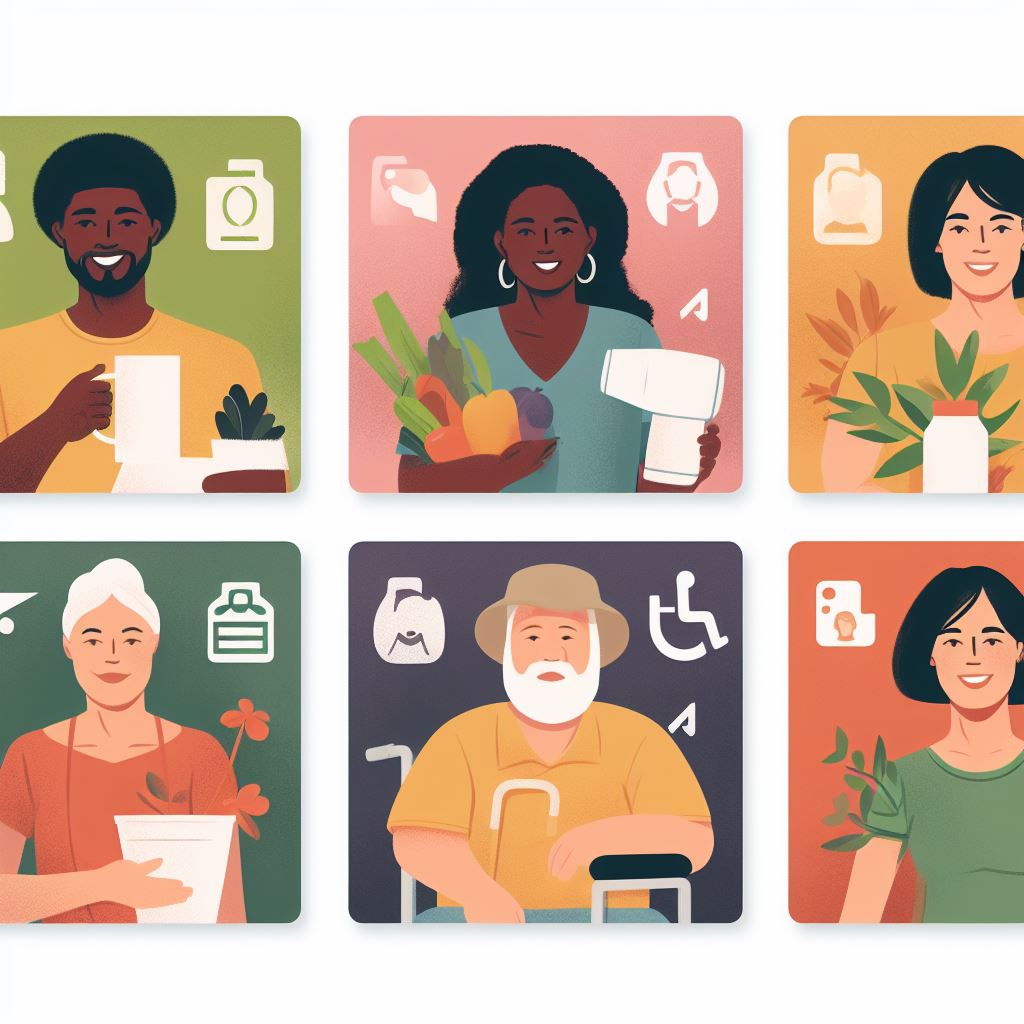Six Key Qualifications for Food Stamp Eligibility

Do you know if you qualify for food stamps? Understanding the six key qualifications for eligibility is essential.
From income requirements to household size and composition, citizenship status to employment and work requirements, and even resources and asset limits, each factor plays a crucial role in determining your eligibility.
In this article, we will break down these qualifications to help you navigate the process and determine if you meet the criteria for food stamp assistance.
Key Takeaways
- The primary factor in determining eligibility for food stamps is the household’s gross monthly income, which includes income from all sources.
- The number of people in the household and their relationship determine eligibility, and the maximum monthly income limit increases with household size.
- Only U.S. citizens and certain qualified immigrants are eligible for food stamps, and proof of citizenship or immigration status is required.
- Able-bodied adults aged 18-49 without dependents must register for work and work at least 20 hours per week to receive benefits for more than three months in a 36-month period.
Income Requirements
To be eligible for food stamps, you must meet certain income requirements. The primary factor in determining eligibility is your household’s gross monthly income. This includes income from all sources, such as wages, self-employment earnings, and government benefits. As of 2021, the federal income eligibility limit for a household of one is $1,383 per month, while for a household of four, it’s $2,839.
However, it’s important to note that some states may have higher income limits. Additionally, there’s a net income test that deducts certain expenses from your gross income to determine your eligibility. These deductions can include housing costs, child support payments, and medical expenses.
It’s crucial to accurately report your income and deductions during the application process to ensure your eligibility is properly assessed. Remember, the income requirements for food stamps are regularly updated, so it’s essential to stay informed about any changes that may affect your eligibility.
Household Size and Composition
You need to determine the size and composition of your household to determine if you qualify for food stamps. The number of people in your household and their relationship to you play a crucial role in determining your eligibility. To help you understand how household size and composition affect food stamp eligibility, let’s take a look at the following table:
| Household Size | Maximum Monthly Income |
|---|---|
| 1 | $1,383 |
| 2 | $1,868 |
| 3 | $2,353 |
| 4 | $2,839 |
As you can see, the maximum monthly income limit increases with the number of people in your household. This means that larger households may qualify for food stamps even if their income is higher. It’s important to note that the income limits may vary depending on your state and other factors. Additionally, household composition also matters. For example, if you have a child under the age of six, your household may be eligible for higher benefits. Understanding the size and composition of your household is essential in determining your food stamp eligibility.
Citizenship and Immigration Status
Understanding the size and composition of your household, along with your citizenship and immigration status, are key factors in determining your eligibility for food stamps.
When it comes to citizenship, in most cases, only U.S. citizens and certain qualified immigrants are eligible for food stamp benefits. Qualified immigrants include lawful permanent residents, refugees, asylees, and those granted withholding of deportation or removal. However, it’s important to note that certain categories of immigrants, such as those with temporary or student visas, are generally not eligible for food stamp benefits.
To prove your citizenship or immigration status, you’ll need to provide documentation such as a U.S. passport, certificate of naturalization, or a valid immigration document. It’s essential to have the necessary paperwork to support your claim, as the eligibility determination process requires proof of your legal status in the United States.
Additionally, it’s worth noting that even if you aren’t eligible for food stamp benefits due to your immigration status, other members of your household who are U.S. citizens or qualified immigrants may still be eligible. It’s crucial to understand the specific eligibility requirements for each individual in your household to maximize the potential benefits.
Employment and Work Requirements
Meeting specific employment and work requirements is crucial for determining your eligibility for food stamp benefits. The U.S. Department of Agriculture (USDA) has established guidelines to ensure that those who receive food stamps are actively seeking employment and working to improve their financial situation. To help you understand these requirements better, here is a table summarizing the key aspects:
| Requirement | Description |
|---|---|
| Work Registration | Most able-bodied adults aged 18-49 without dependents must register for work. |
| Work Requirement | Able-bodied adults aged 18-49 without dependents must work at least 20 hours per week to receive benefits for more than three months in a 36-month period. |
| Exemptions | Certain individuals, such as those with a disability or caring for a dependent, may be exempt from the work requirement. |
| Work Programs | States may offer work programs to help individuals meet the work requirement.
Resources and Asset Limits
To continue exploring food stamp eligibility, let’s now delve into the subtopic of ‘Resources and Asset Limits’. When determining your eligibility for food stamps, the amount of resources and assets you own is taken into consideration. Here are three key points to understand about resources and asset limits:
- Countable Resources: Certain resources are considered when determining your eligibility for food stamps. These include cash, bank accounts, stocks, bonds, and property other than your primary residence. It’s important to note that not all resources are counted, such as your home and personal belongings.
- Resource Limits: To qualify for food stamps, your countable resources must fall below a certain limit. The exact limit varies by household size, but as of 2021, it’s generally set at $2,250 for most households and $3,500 for households with a member who’s elderly or disabled. It’s important to stay within these resource limits to maintain eligibility.
- Exempt Resources: Some resources are exempt and not counted towards the resource limit. These exemptions include your primary residence, vehicles, retirement accounts, and certain types of income-producing property. It’s essential to understand the exemptions to accurately determine your eligibility.
Frequently Asked Questions
Are There Any Specific Qualifications for Individuals With Disabilities to Be Eligible for Food Stamps?
If you have a disability, there are specific qualifications for you to be eligible for food stamps. These qualifications are designed to ensure that individuals with disabilities receive the support they need.
Can College Students Who Are Financially Dependent on Their Parents Apply for Food Stamps?
Yes, financially dependent college students can apply for food stamps. However, eligibility depends on meeting certain qualifications. These qualifications include income limits, enrollment in a qualifying educational program, and other factors.
What Happens if I Do Not Meet the Income Requirements but Still Need Assistance?
If you don’t meet the income requirements but still need assistance, you might not qualify for food stamps. However, there could be other resources available to help you in your situation.
Are Non-Citizens Who Are Legally Residing in the Country Eligible for Food Stamps?
If you are a non-citizen legally residing in the country, you may be eligible for food stamps. However, meeting the income requirements and other qualifications is necessary to determine your eligibility.
Can Individuals Who Are Unemployed but Actively Seeking Employment Still Qualify for Food Stamps?
If you’re unemployed but actively looking for a job, you can still qualify for food stamps. The Six Key Qualifications for Food Stamp Eligibility do not specifically require employment as a condition.



